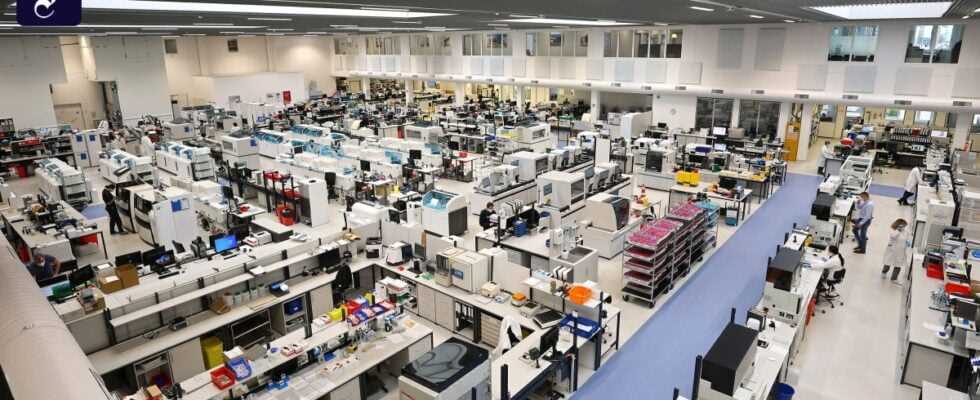In the Corona crisis, two developments are currently converging. The nationwide incidence has never been as high as it is now. The Robert Koch Institute gave the value on Tuesday as 533 infections per 100,000 inhabitants. And the German laboratories have evaluated as many PCR tests as they have recently. According to the Association of Accredited Medical Laboratories (ALM), there were almost two million tests last week, which is around 600,000 more evaluations than the week before. “It was to be expected that the number of tests would increase,” said Michael Müller, chairman of the association, on Tuesday. “But we didn’t expect it to rise so much.”
Overall, the 200 medical laboratories that are affiliated with the association and report data were able to evaluate almost 2.3 million PCR tests in the past week. The association gave the degree of occupancy at 86 percent. Since the turn of the year, the load on the laboratories has increased continuously. For this week, the facilities have increased their capacities again: They reported that a good 2.5 million tests per week are possible. The association warned that at some point it would no longer be possible to go further up. Laboratory resources are finite. Unlike at the beginning of the pandemic, it is not now tests and reagents that limit the amount. There is a lack of additional staff to operate the machines.
Symptomatic patients first
The laboratory association therefore referred to the increasing importance of prioritizing PCR tests – with the result that some have to wait longer for the result than is currently the case. The fact that a result is available within 24 hours can soon no longer be guaranteed in every case, it said. “It is important to deal efficiently and sensibly with limited resources,” said Müller. “We now have to talk about how the prioritization can be implemented.” For him, the solution lies in the national test strategy, a guideline from the Federal Ministry of Health, which is now led by Karl Lauterbach (SPD).
According to the concept, there are five levels, each with decreasing relevance, with the most important being the evaluation of tests that come from people with typical corona symptoms. This is followed immediately by close contacts of those who have been proven to be infected. However, Müller pointed out that, given the more contagious omicron variant, it might no longer always be necessary to test an entire family if one member already has Corona. Level three is followed by tests in the event of an outbreak, for example in doctor’s offices or schools. Preventive testing of people with no signs of illness is a low priority, so this is where longer wait times are most likely to arise in the coming weeks.
The laboratory association spoke out in favor of only arranging for PCR tests if this was absolutely necessary. According to the latest regulations, infected people and contact persons can be freed from isolation and quarantine at an early stage using recognized rapid tests – a PCR test is only mandatory for healthcare workers. “Antigen tests also perform well,” warned Müller. It is important for the association that the prioritization according to the test strategy already takes place in the test center because the context of the test is clear there. According to their own statements, the laboratories could hardly afford this effort.
